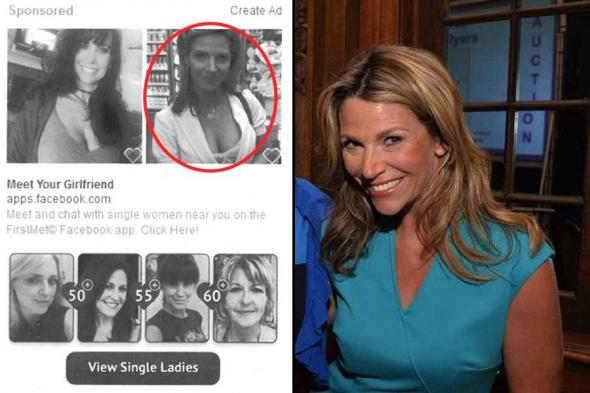Pennsylvania District Court Holds Right of Publicity Claims Barred by Communications Decency Act Section 230
By Owen Connolly and Jennifer E. RothmanJune 16, 2020

A federal district court in Pennsylvania granted Facebook, Imgur, and Reddit’s respective motions to dismiss claims that they had violated Karen Hepp’s common law and statutory rights of publicity under Pennsylvania law. The Court held her claims barred by the Communications Decency Act (“CDA”)'s Section 230, 47 U.S.C. § 230.
The case arose when Ms. Hepp, a Philadelphia-based news anchor, discovered through co-workers that a photograph taken of her by a convenience store security camera was being used in online advertisements for erectile dysfunction drugs and dating websites, as well as on dating websites themselves. In particular, the photograph of her appeared in an advertisement on Facebook for a dating website, and was also featured on Imgur and Reddit accompanied by headings and comments that Hepp thought sexually degrading. Examples of these uses can be found in her complaint. One less salacious example is below (the image on the right is a separate portrait of Hepp):

Although Ms. Hepp “does not allege that Facebook, Imgur, or Reddit created, authored, or directly published the content,” she did claim that the unauthorized dissemination of this photograph, and the defendants’ role in its dissemination, caused irreparable harm to her “reputation, brand, and image.” The moving defendants asserted that Section 230(c) of the CDA barred Ms. Hepp’s claims.
Section 230(c) of the CDA immunizes “interactive computer service” providers from liability stemming from third-party content on their platforms. Ms. Hepp, however, contended that Section 230(e)’s exception from immunity for laws enforcing “intellectual property” rights removed the Section 230 protections from the defendants. There is widespread agreement that this provision allows liability for third-party violations of federal intellectual property rights, subject to other limits on liability such as secondary liability rules under tort law and the DMCA (Digital Millennium Copyright Act). However, there is uncertainty as to whether the exemption applies to state intellectual property laws.
Ms. Hepp’s case is one of first impression for the Third Circuit on this question. The Ninth Circuit Court of Appeals has held that Section 230(e)(2) excludes only federal intellectual property laws from the CDA’s immunity provisions. See Perfect 10, Inc. v. CCBill LLC, 488 F.3d 1102, 1119 (9th Cir. 2007). But not all courts have agreed, with some allowing claims based on state intellectual property laws, like the right of publicity, to proceed. See, e.g., Atlantic Recording Corp. v. Project Playlist, Inc., 603 F. Supp. 2d 690 (S.D.N.Y. 2009); Doe v. Friendfinder Network, Inc., 540 F. Supp. 2d 288 (D.N.H. 2008). In particular, these courts have pointed to the use elsewhere in § 230 of distinctions between state and federal laws to indicate that the lack of such a distinction in § 230(e)(2) suggests it is meant to apply to both state and federal intellectual property laws. (We note that even if there was clarity as to the inclusion of state intellectual property laws, there could be a dispute as to whether right of publicity constitutes such “intellectual property.”)
After concluding that the defendants satisfied the required elements for Section 230(c) immunity, the district court adopted the Ninth Circuit’s reasoning from Perfect 10 that “[c]onditioning CDA immunity on the diverse potentially applicable state laws would have a negative effect on the development of the internet, and, therefore, would run contrary to the purpose and intent of the CDA.” Accordingly, the court concluded that “construing § 230(e)(2) as preserving only federal intellectual property claims is most fitting because this interpretation simultaneously maintains broad immunity in line with the CDA’s stated congressional purpose.”
Because of the uncertainty in the law and the lack of guidance from the Third Circuit on this issue, this case is certainly one to watch should an appeal be filed. (There are still defendants that have not yet been dismissed from the case, so an appeal is likely some time off at this point.)
This case also provides further evidence that Section 230 needs some rethinking. It is absurd that if Ms. Hepp had held the copyright to the photograph in question she could have forced Facebook, Imgur, and Reddit to swiftly remove her image pursuant to the DMCA take-down notice system, but because her photograph was taken by a surveillance camera she is left without recourse, playing whack-a-mole with wrongdoers who she may not even be able to locate. Once on notice, internet companies should be obligated to remove third-party content that wrongfully uses others names and images in violation of various federal and state laws. Basic tort law principles should be let to do their work. The early days of the Internet have long since passed and it is time to move beyond the blanket immunity that CDA 230 provides. Congress took one step in this direction (although a very limited one) by passing FOSTA (the Fight Online Sex Trafficking Act of 2017). 47 USC § 230 (e)(5) (providing that the provision has no effect on “sex trafficking law"), but more needs to be done.
With that said, to do so requires further Congressional action. The district court rightly rejected the possibility that President's Trump's May 28, 2020 Executive Order, directed at interactive computer services and their control over content on their platforms, had any impact on Hepp’s case. Even if the order were enforceable, which is doubtful, it would “not alter the Court’s analysis of the CDA immunity in this case.”
Hepp v. Facebook, Inc., et al, (E.D. Pa., June 5, 2020)
Amended Complaint, Hepp v. Facebook, Inc. et al (Filed, Feb. 18, 2020)
